The Mythology and Symbolism Behind Ophiuchus
For centuries, astrology has captivated and intrigued individuals seeking to understand the mysteries of the cosmos. In this exploration of Ophiuchus, we uncover the hidden stories and symbolic implications behind this intriguing constellation. Ophiuchus, also known as the Serpent Bearer, not only has roots in ancient Greek mythology but also draws influence from Babylonian culture. Its symbolism encompasses healing, medicine, and esoteric wisdom, making it a fascinating subject to delve into. Additionally, we will examine the impact of Ophiuchus on astrology and its representation in art and popular culture. Join us on this journey through the celestial realm as we unravel the captivating mythology and symbolism of Ophiuchus.
Contents
- The Origin of Ophiuchus
- The Symbolism of Ophiuchus
- The Hidden Wisdom of Ophiuchus
- The Impact on Astrology
- Unveiling Ophiuchus in Art and Culture
- Conclusion
-
Frequently Asked Questions
- 1. What is the significance of Ophiuchus in astrology?
- 2. How does Ophiuchus differ from the other zodiac signs?
- 3. What are the traits and characteristics of Ophiuchus individuals?
- 4. Can Ophiuchus personalities be compatible with other zodiac signs?
- 5. Why is Ophiuchus sometimes referred to as the forgotten constellation?
- 6. How has the revelation of Ophiuchus impacted astrology?
- 7. Are there any ancient artifacts depicting Ophiuchus?
- 8. How has Ophiuchus been represented in modern pop culture?
- 9. Does Ophiuchus have any connection to other mythological creatures?
- 10. Can Ophiuchus individuals find guidance in their zodiac sign?
- References
-
Frequently Asked Questions
- 1. What is the significance of Ophiuchus in astrology?
- 2. How does Ophiuchus differ from the other zodiac signs?
- 3. What is the origin of the Ophiuchus constellation?
- 4. What does the symbol of Ophiuchus, the Serpent Bearer, represent?
- 5. Does the addition of Ophiuchus change my astrological sign?
- 6. Why is Ophiuchus considered a forgotten constellation?
- 7. Has the discovery of Ophiuchus affected the boundaries of other zodiac signs?
- 8. Are there any ancient artifacts or mythological paintings depicting Ophiuchus?
- 9. How has Ophiuchus been depicted in modern pop culture?
- 10. Does the inclusion of Ophiuchus strengthen or diminish astrology’s credibility?
- References
- Read More
The Origin of Ophiuchus
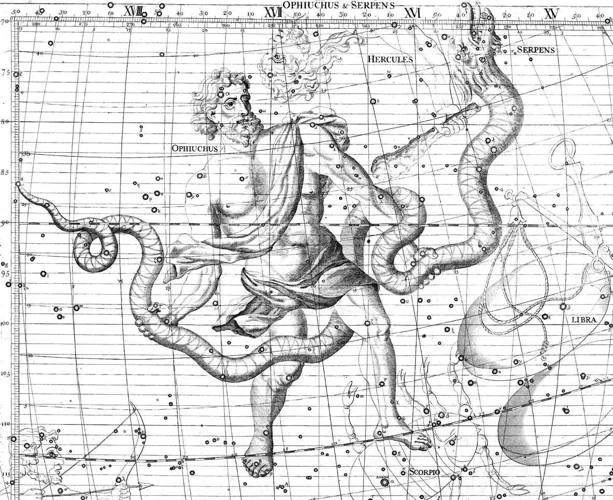
Ophiuchus, a constellation found in the celestial sphere, has origins deeply rooted in ancient mythology and cultural influences. In Greek mythology, this constellation is associated with the tale of Asclepius, the god of medicine and healing. According to legend, Asclepius was the son of Apollo and a mortal woman named Coronis, who was known for her beauty and wisdom. Asclepius became renowned for his extraordinary healing abilities, using his powers to resurrect the dead. However, this attracted attention from the gods and resulted in dire consequences. Zeus, fearing that humanity would become immortal, struck down Asclepius with a thunderbolt. As a tribute to his noble deeds, Asclepius was immortalized as the constellation Ophiuchus, forever honoring his connection to healing and medicine. Additionally, Ophiuchus also draws inspiration from Babylonian astrology, where it symbolizes the god Enki, associated with wisdom and the underworld. The origins of Ophiuchus, steeped in mythical tales and cultural significance, continue to captivate and intrigue those who explore the wonder of the cosmos.
1.1 Ancient Greek Mythology
In ancient Greek mythology, the story of Ophiuchus unfolds as the tale of Asclepius, the god of medicine and healing. Asclepius, the son of Apollo and Coronis, possessed incredible healing abilities and was known for his wisdom and compassion. It is said that he could even bring the dead back to life. Asclepius became so skilled in the art of healing that he gained the attention of the gods. This drew the ire of Zeus, who believed that Asclepius was disrupting the natural order of life and death. In his wrath, Zeus struck down Asclepius with a thunderbolt, punishing him for his audacity. Despite his demise, Asclepius was elevated to the heavens as the constellation Ophiuchus, symbolizing his connection to the healing arts. Ophiuchus represents the eternal presence of healing and medicine in the cosmos, a reminder of Asclepius’ selfless acts and his divine lineage. This ancient Greek myth offers a glimpse into the significance and reverence placed upon Ophiuchus in the realm of mythology, showcasing its enduring impact on culture and symbolism.
1.2 Babylonian Influence
The Babylonian influence on the mythology and symbolism of Ophiuchus is an intriguing aspect to explore. In Babylonian astrology, Ophiuchus is associated with the god Enki. Enki is considered the god of wisdom and knowledge, as well as the ruler of the underworld. This connection adds a layer of depth to the symbolism of Ophiuchus, as it represents not only healing and medicine but also esoteric wisdom and the understanding of the hidden realms.
The Babylonians believed that Enki held the key to unlocking the secrets of the universe, including the mysteries of life and death. As the ruler of the underworld, Enki had the power to traverse between the realms of the living and the dead, making him a powerful figure in Babylonian mythology. With Ophiuchus symbolizing Enki, it is thought to embody the knowledge and wisdom needed to navigate the complexities of life and tap into the mysteries of the cosmic forces.
The Babylonians were skilled astronomers, and their observations and interpretations of celestial bodies greatly influenced their astrology. They divided the sky into twelve equal sections, known as the zodiac, with each section representing a different constellation. Ophiuchus, although not traditionally included in the Western zodiac, played a significant role in Babylonian astrology. Its inclusion emphasized the importance of wisdom, healing, and the connection between the earthly and supernatural realms.
The Babylonian influence on Ophiuchus showcases the rich tapestry of ancient cultures and their belief systems. Exploring the impact of Babylonian mythology on Ophiuchus adds a fascinating dimension to our understanding of this constellation and its significance in the study of astrology. It serves as a reminder that the quest for knowledge and the exploration of the unknown have always been fundamental aspects of human curiosity and the human experience.
The Symbolism of Ophiuchus
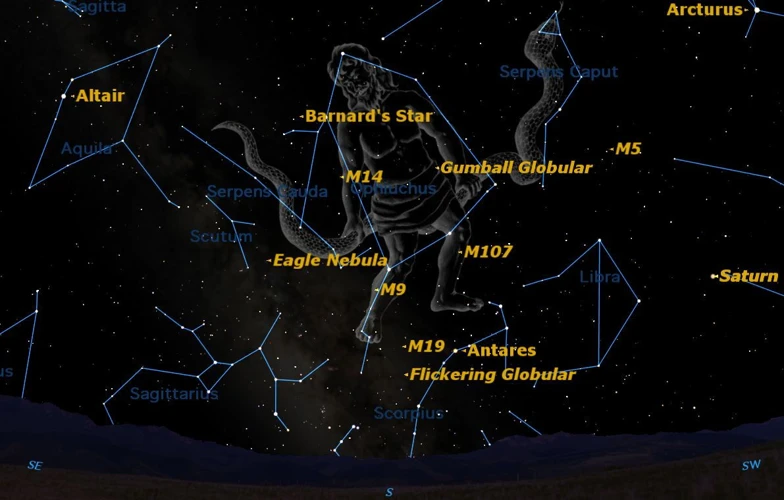
The Symbolism of Ophiuchus
Ophiuchus carries profound symbolism, serving as a rich tapestry of meaning and significance. Known as the Serpent Bearer, Ophiuchus represents a duality of roles, embodying both the healer and the serpent. The serpent itself has long been associated with wisdom, transformation, and regeneration in various cultures. In Ophiuchus, the intertwining serpent represents the healing arts and the power of rejuvenation. The constellation’s association with healing and medicine comes from the story of Asclepius, as mentioned earlier, who possessed extraordinary healing abilities. Ophiuchus’s presence in astrology brings forth notions of transformation and spiritual growth, as individuals born under this sign are believed to possess deep wisdom and an innate ability to heal others. Some even consider Ophiuchus a thirteenth zodiac sign, challenging the traditional twelve-sign horoscope system. Its enigmatic symbolism invites us to explore the depths of ancient myths and the intricate connections between healing, wisdom, and celestial forces.
2.1 The Serpent Bearer
The Serpent Bearer is a significant aspect of Ophiuchus, adding to its intrigue and symbolism. In Greek mythology, the constellation represents the legendary figure of Asclepius, who is often depicted holding a serpent-entwined staff, known as the Rod of Asclepius. This imagery has become synonymous with healing and medicine, as the serpent symbolizes rejuvenation and regeneration. The Rod of Asclepius has long been associated with the medical profession, even today being recognized as the universal symbol for healthcare. The serpent’s shedding of its skin further signifies the process of transformation and renewal, reflecting the healing journey. Additionally, the serpent in Ophiuchus is believed to signify knowledge and wisdom, as serpents were often associated with these qualities in ancient cultures. This connection to wisdom aligns with the role of Ophiuchus as a bearer of secret knowledge and esoteric wisdom, making it a fascinating aspect of the constellation’s symbolism. Exploring the depths of the Serpent Bearer within Ophiuchus opens up a realm of ancient mythology and enlightenment, where healing, medicine, and the pursuit of wisdom intertwine.
2.2 Healing and Medicine
The constellation of Ophiuchus holds profound symbolism when it comes to healing and medicine. In ancient Greek mythology, Ophiuchus is associated with Asclepius, the god of medicine and healing. Asclepius was renowned for his ability to bring the dead back to life, emphasizing his mastery over the art of healing. The representation of Ophiuchus as the Serpent Bearer further emphasizes its connection to medicine, as the serpent is a symbol of healing and rebirth in many cultures. This symbol can be seen in various medical organizations and professions today. The presence of Ophiuchus in astrology also highlights its association with healing, as individuals born under this sign are believed to possess innate healing abilities and a deep understanding of the human body. The inclusion of Ophiuchus in astrological charts has sparked debate and exploration, as it offers new insights into the personalities and potential of individuals with this sign. The significance of healing and medicine within Ophiuchus extends beyond just the physical realm, also encompassing emotional and spiritual healing. Exploring the mythology and symbolism behind Ophiuchus reveals its deep-rooted connection to the healing arts and the transformative power of restoration.
2.3 Astrological Significance
Astrologically, Ophiuchus holds a unique and intriguing significance within the zodiac system. While traditionally there are twelve zodiac signs, the addition of Ophiuchus brings the total to thirteen. This has sparked debates and discussions among astrologers and enthusiasts alike. Ophiuchus is believed to exert influence over individuals born between November 29th and December 17th, although its presence is often overlooked in mainstream astrology. Those born under this sign are said to possess traits such as wisdom, healing abilities, and an affinity for seeking knowledge and truth. Ophiuchus is associated with transformation and the merging of opposites, symbolizing the ongoing journey of self-discovery and personal development. Its presence challenges the conventional understanding of astrology and encourages exploration beyond the recognized zodiac signs. While some astrologers incorporate Ophiuchus into their readings and interpretations, others remain steadfast in the traditional twelve-sign system. Nonetheless, Ophiuchus remains a subject of fascination for those who desire a deeper understanding of astrology and its potential for uncovering hidden aspects of one’s personality and destiny.
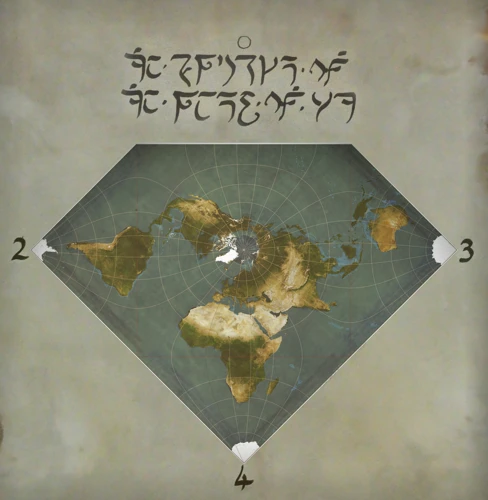
Within Ophiuchus lies a hidden wisdom that transcends its celestial presence. Often overlooked and overshadowed by the well-known zodiac signs, this constellation holds secrets waiting to be uncovered. Ophiuchus was once recognized as the thirteenth zodiac sign, positioned between Scorpio and Sagittarius. However, its inclusion was untangled from mainstream astrology due to the alignment with twelve months of the year. Yet, the wisdom of Ophiuchus persists, even as an ancient and forgotten constellation. Some believe that those born under this sign possess unique traits and characteristics, such as a deep insight into the mysteries of life and a natural inclination towards spiritual and occult knowledge. As the boundaries of the zodiac shift and evolve, Ophiuchus stands as a reminder that there is much more to astrology and the human experience than meets the eye. The hidden wisdom of Ophiuchus beckons those who seek to unravel the mysteries of the cosmos, offering a glimpse into the enigmatic and unexplored realms of the universe.
3.1 Forgotten Constellation
In the vast expanse of the night sky, there exists a forgotten constellation known as Ophiuchus. This constellation, often overlooked or omitted from traditional horoscopes, holds a fascinating place in the realm of astrology. Ophiuchus, also referred to as the Serpent Bearer, was once recognized by ancient civilizations for its celestial significance. However, over time, its prominence diminished, and it became obscured and overshadowed by the more popular twelve zodiac signs. Nevertheless, the essence of Ophiuchus still lingers, waiting to be rediscovered and embraced. Its absence from mainstream astrology has sparked debates and discussions about its rightful place within the zodiac. Advocates for the inclusion of Ophiuchus argue that its addition would provide a more accurate representation of the celestial alignment at the time of an individual’s birth. Despite its forgotten status, Ophiuchus continues to intrigue and captivate those who seek to uncover the hidden wisdom it holds. It serves as a reminder that there is always more to explore, even in the vast cosmic tapestry that stretches above us. While Ophiuchus may have been dismissed and relegated to the realm of obscurity, its story and symbolism remain as enigmatic as ever.
3.2 Shifting Zodiac Boundaries
The concept of shifting zodiac boundaries is a fascinating aspect of Ophiuchus’ impact on astrology. Traditionally, the zodiac consists of twelve signs, each representing thirty degrees of the celestial sphere. However, the introduction of Ophiuchus brings into question the alignment and division of these zodiac signs. As Ophiuchus lies within the ecliptic, it challenges the established boundaries, potentially altering the astrological dates associated with each sign. This has led to debates and discussions among astrologers and enthusiasts, as they grapple with the implications of incorporating Ophiuchus into the zodiac system. Some argue that the addition of Ophiuchus requires a recalibration of dates, causing a shift in the perceived characteristics and traits attributed to each astrological sign. Others maintain the precision and integrity of the existing twelve signs, resisting any alteration to the zodiac boundaries. /fascinating-greek-mythical-creatures/ Regardless of the stance taken, the inclusion of Ophiuchus in the discussion has undoubtedly sparked a reevaluation of astrology and the significance attributed to the zodiac signs. It highlights the fluidity and evolutionary nature of astrological interpretations, reminding us that the cosmos is ever-changing and full of mysteries waiting to be unveiled.
The Impact on Astrology
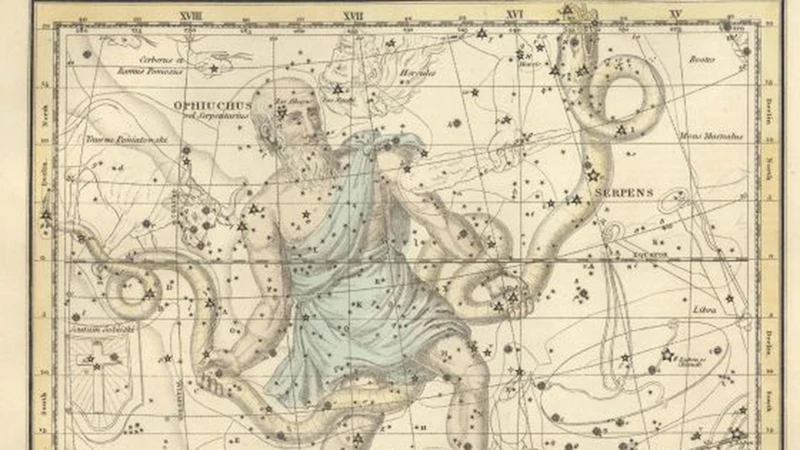
The Impact on Astrology
1. Paradigm Shift: The inclusion of Ophiuchus in astrology has led to a significant paradigm shift in the way astrologers interpret and analyze horoscopes. With the introduction of this thirteenth constellation, the traditional zodiac system of twelve signs had to be reassessed and realigned. This shift has caused astrologers to reconsider characteristics, traits, and predictions associated with each sign and has sparked debates and discussions within the astrological community.
2. Altered Birth Charts: For individuals whose birthdays fall within the date range of Ophiuchus (November 29th to December 17th), the inclusion of this constellation has altered their astrological birth charts. As Ophiuchus now occupies a portion of the sky that was previously assigned to another sign, those born during this period may find that their sun sign has changed. This revelation has caused some individuals to question their astrological identity and explore the influences of Ophiuchus on their personalities and life paths.
3. New Sign Attributes: With the addition of Ophiuchus, astrologers have also introduced new attributes and characteristics associated with this constellation. Ophiuchus is often described as passionate, creative, and mystical, possessing a deep desire for knowledge and the potential for healing. Individuals who resonate with the traits of Ophiuchus may find a sense of belonging within this newly recognized sign and seek to embrace its symbolism in their astrological readings and self-understanding.
4. Integration Challenges: The integration of Ophiuchus into astrology has not been without its challenges. Some astrologers argue against its inclusion, citing the centuries-old traditional zodiac system that has been widely accepted and followed. Others embrace the expansion of the zodiac and believe it offers a more accurate representation of celestial influences on individual lives. This ongoing debate continues to shape the future of astrology, as practitioners navigate the complexities of incorporating Ophiuchus into their practice.
5. Increased Awareness: Regardless of differing opinions, the introduction of Ophiuchus has increased the overall awareness and interest in astrology. It has sparked curiosity and prompted individuals to explore and research this ancient practice more deeply. The inclusion of Ophiuchus has breathed new life into astrology, attracting a wider audience and inspiring further exploration and study of the celestial realm.
As astrology continues to evolve and adapt, the impact of Ophiuchus on this ancient practice remains an ongoing conversation. Whether embraced or contested, the inclusion of this constellation has undeniably altered the landscape of astrology, challenging traditional beliefs and encouraging new perspectives on the influence of the stars and planets on our lives.
Unveiling Ophiuchus in Art and Culture
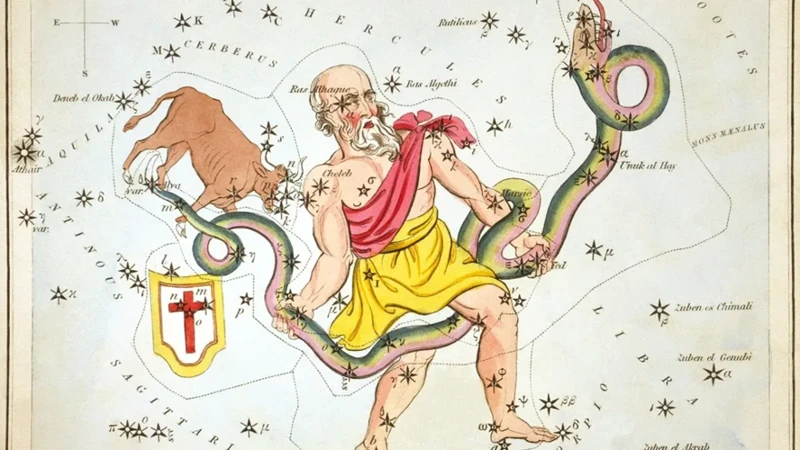
Ophiuchus, the enigmatic constellation, has made its mark in various forms of art and cultural expressions throughout history. In ancient times, Ophiuchus appeared in the art of different civilizations, such as the clay tablets of Babylonian astrology and the mythological paintings of ancient Greece. The constellation’s depiction as the Serpent Bearer was often portrayed in sculptures and pottery, symbolizing the connection between humanity and the cosmos. In modern culture, Ophiuchus continues to leave its imprint. It can be found in contemporary artwork, literature, and even tattoos, often representing hidden wisdom, healing, and alternative spiritual paths. As society delves deeper into the mysteries of the cosmos, Ophiuchus serves as a source of inspiration for artists and a symbol of fascination for individuals seeking to unravel the secrets of the universe. Its presence in art and culture provides a testament to the enduring allure of this celestial being.
5.1 Ancient Artifacts and Mythological Paintings
Ancient artifacts and mythological paintings provide a fascinating glimpse into the significance of Ophiuchus in various cultures throughout history. In ancient Egypt, Ophiuchus was often depicted in the famous Dendera Zodiac, a symbolic representation of the sky. This zodiac portrayed Ophiuchus with a snake-like body, holding serpents in each hand, showcasing the constellation’s association with healing and medicine. Additionally, in Greek mythology, the figure of Ophiuchus was commemorated in various artworks and sculptures. Notably, a marble statue known as the Farnese Statue of Hercules represents Hercules in the form of Ophiuchus, with a serpent entwined around his body. This depiction highlights the connection between Ophiuchus and the power to conquer and overcome. Mythological paintings also feature Ophiuchus, such as “The Fall of the Rebel Angels” by Hieronymus Bosch, where the constellation is intricately woven into the celestial backdrop, symbolizing the shifting cosmic balance. Exploring these ancient artifacts and mythological paintings allows us to appreciate the enduring presence of Ophiuchus in art and the profound significance attributed to this constellation throughout different time periods and cultures.
5.2 Modern Pop Culture References
Modern pop culture has been deeply influenced by astrology and the symbolism of Ophiuchus has not been overlooked. This enigmatic constellation has made appearances in various forms of media, captivating audiences around the world. In the realm of movies and television, Ophiuchus has been referenced in popular franchises like Harry Potter, where it is associated with the character of Severus Snape, who possesses both light and dark qualities. Another notable reference can be found in the Marvel Cinematic Universe, particularly in the character of Doctor Strange, whose journey as a master of the mystic arts aligns with Ophiuchus’ connection to healing and esoteric wisdom. Ophiuchus has made appearances in literature such as the Percy Jackson series, adding a touch of intrigue and mystery to the narrative. The influence of Ophiuchus extends beyond the realm of entertainment as well. In fashion, the symbol of Ophiuchus has been incorporated into designs, jewelry, and accessories, allowing individuals to express their connection to this lesser-known zodiac sign. Whether it is on the big screen, in books, or through stylish trends, modern pop culture embraces the allure and significance of Ophiuchus, ensuring its continued presence and resonance in the contemporary world.
Conclusion

In conclusion, the exploration of Ophiuchus reveals a rich tapestry of mythology, symbolism, and cultural significance. This constellation, often overlooked and hidden behind the more widely recognized zodiac signs, holds a captivating story that intertwines ancient Greek mythology with Babylonian influence. Ophiuchus, represented by the Serpent Bearer, symbolizes healing and medicine, embodying the archetype of a wise healer. Its inclusion in astrology challenges the traditional boundaries of the zodiac and invites us to delve deeper into the mysteries of the celestial realm. The rehabilitation of Ophiuchus as a recognized constellation has sparked interest and debate in the astrological community, prompting a reevaluation of birth charts and astrological interpretations. Furthermore, Ophiuchus finds its place in art and culture, with depictions in ancient artifacts and mythological paintings, as well as references in contemporary pop culture. Through its exploration, we gain a deeper understanding of the interconnectedness between mythology, astronomy, and human fascination with the cosmos. So, let us continue to delve into these cosmic wonders, be it exploring Mayan agriculture or delving into the mysteries of the afterlife in Japanese mythology, as we unravel the secrets and symbolism of the celestial realms.
Frequently Asked Questions

1. What is the significance of Ophiuchus in astrology?
Ophiuchus holds astrological significance as the constellation that represents the Serpent Bearer. It is considered the 13th zodiac sign, known for its association with healing, wisdom, and transformation.
2. How does Ophiuchus differ from the other zodiac signs?
Ophiuchus stands apart from the traditional zodiac signs as it belongs to the sidereal zodiac system, which takes into account the actual positions of constellations. This system differs from the commonly known tropical zodiac, which divides the sky into 12 equal parts.
3. What are the traits and characteristics of Ophiuchus individuals?
Ophiuchus individuals are known for their intuition, wisdom, and healing abilities. They are often driven by the desire to make a positive impact, guided by a deep sense of empathy and understanding.
4. Can Ophiuchus personalities be compatible with other zodiac signs?
Yes, Ophiuchus personalities can form meaningful connections with other zodiac signs. Compatibility is determined by various factors, including individual characteristics, communication, and shared values.
5. Why is Ophiuchus sometimes referred to as the forgotten constellation?
Ophiuchus earned the title of the forgotten constellation because it was excluded from the traditional zodiac system used in Western astrology. However, recent discussions and developments have brought it back into the spotlight.
6. How has the revelation of Ophiuchus impacted astrology?
The introduction of Ophiuchus as the 13th zodiac sign has sparked debates and discussions within the astrological community. Some astrologers have incorporated it into their readings, while others continue to follow the traditional 12-sign system.
7. Are there any ancient artifacts depicting Ophiuchus?
Ancient artifacts, such as Babylonian tablets and Greek vases, have been found with depictions of Ophiuchus. These artifacts provide insights into how this constellation was revered and recognized in ancient societies.
8. How has Ophiuchus been represented in modern pop culture?
Ophiuchus has made appearances in various forms of modern entertainment, including literature, movies, and music. It often symbolizes hidden wisdom and the pursuit of enlightenment.
9. Does Ophiuchus have any connection to other mythological creatures?
While Ophiuchus doesn’t have direct connections to specific mythological creatures, its symbolism of transformation and healing aligns with the themes represented by many mythical beings in different cultures.
10. Can Ophiuchus individuals find guidance in their zodiac sign?
Like individuals of any zodiac sign, Ophiuchus individuals can find inspiration and guidance through the qualities associated with their constellation. However, it is important to remember that each person’s journey is unique, and astrology serves as a tool for self-reflection rather than absolute fate.
References
Frequently Asked Questions

1. What is the significance of Ophiuchus in astrology?
Ophiuchus, also known as the Serpent Bearer, represents a thirteenth zodiac sign that’s often overlooked. Its influence in astrology adds depth and complexity to the interpretation of horoscopes.
2. How does Ophiuchus differ from the other zodiac signs?
Ophiuchus breaks away from the traditional twelve zodiac signs by embodying the traits of healing, transformation, and the pursuit of wisdom. It brings a unique perspective and energy to astrological readings.
3. What is the origin of the Ophiuchus constellation?
The Ophiuchus constellation finds its roots in ancient Greek mythology, where it represents the legendary healer Asclepius. This constellation later gained significance in Babylonian astronomy as well.
4. What does the symbol of Ophiuchus, the Serpent Bearer, represent?
The symbol of Ophiuchus, a serpent intertwined around a staff, signifies healing and medicine. It represents the power to harness and manipulate the forces that govern life and death.
5. Does the addition of Ophiuchus change my astrological sign?
No, the addition of Ophiuchus does not change your astrological sign. It simply broadens the spectrum of personality traits and characteristics to consider in your horoscope.
6. Why is Ophiuchus considered a forgotten constellation?
Ophiuchus is often referred to as a forgotten constellation because it was not historically included in the zodiac system. Its exclusion for centuries led to a lack of recognition and understanding.
7. Has the discovery of Ophiuchus affected the boundaries of other zodiac signs?
Yes, the discovery of Ophiuchus has prompted discussions about shifting the boundaries of other zodiac signs. This reevaluation of astrological divisions aims to accommodate the inclusion of Ophiuchus.
8. Are there any ancient artifacts or mythological paintings depicting Ophiuchus?
Yes, ancient artifacts and mythological paintings have depicted Ophiuchus. In Greek and Babylonian art, Asclepius, the figure associated with Ophiuchus, is shown holding the staff with a serpent.
9. How has Ophiuchus been depicted in modern pop culture?
Ophiuchus has found its way into modern pop culture through various mediums. It has appeared in novels, television shows, and movies, often symbolizing wisdom, healing abilities, or secret knowledge.
10. Does the inclusion of Ophiuchus strengthen or diminish astrology’s credibility?
The inclusion of Ophiuchus adds depth and complexity to astrology, potentially strengthening its credibility. However, as with any shift or change, some may question the validity of the system as a whole.







